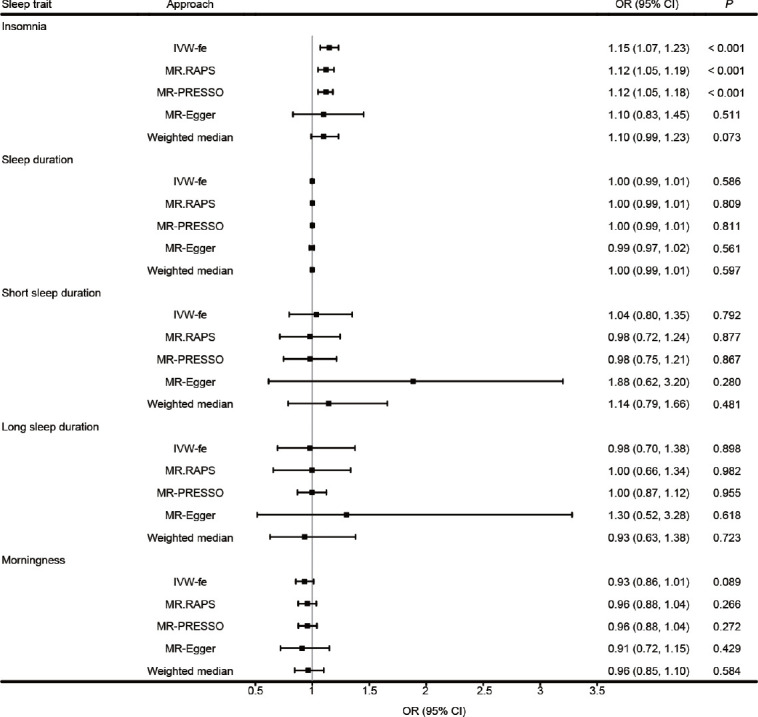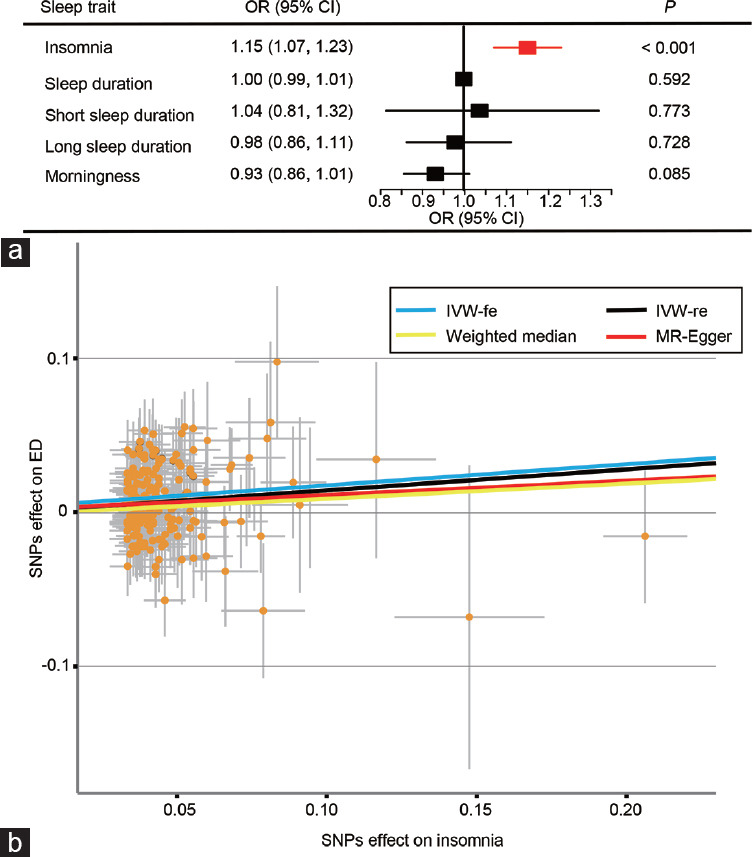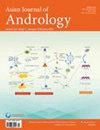基因预测的失眠会增加勃起功能障碍的风险。
IF 3
2区 医学
Q2 ANDROLOGY
引用次数: 12
摘要
睡眠因其对健康的重要性而受到广泛关注。然而,其与勃起功能障碍(ED)的关系尚不充分研究。为了调查睡眠特征(失眠、睡眠时间和睡眠类型)与ED之间的潜在因果关系,进行了这项研究。与失眠、睡眠时间和睡眠类型相关的单核苷酸多态性(snp)是从之前的全基因组关联研究(GWAS)中检索到的。采用传统的双样本孟德尔随机化(MR)来估计睡眠特征与ED之间的因果关系。ED的汇总统计数据来自欧洲血统的个体(6175例与21730例对照)。随机效应反方差加权(IVW)估计显示,基因预测的失眠与ED的1.15倍风险有因果关系(95%置信区间:1.07-1.23,P < 0.001)。IVW显示,睡眠时间和晨起与ED无因果关系(均P > 0.05)。这些发现与敏感性分析的结果一致。基于基因数据,这项研究提供了因果证据,表明基因预测的失眠会增加ED的风险,而睡眠时间和睡眠类型则不会。本文章由计算机程序翻译,如有差异,请以英文原文为准。


Genetically predicted insomnia causally increases the risk of erectile dysfunction.
Sleep has attracted extensive attention due to its significance in health. However, its association with erectile dysfunction (ED) is insufficiently investigated. To investigate the potential causal links between sleep traits (insomnia, sleep duration, and chronotype) and ED, this study was performed. The single-nucleotide polymorphisms (SNPs) associated with insomnia, sleep duration, and chronotype were retrieved from previous genome-wide association studies (GWAS). A conventional two-sample Mendelian randomization (MR) was used to estimate the causal links between sleep traits and ED. The summary statistics of ED were from individuals of European ancestry (6175 cases vs 217 630 controls). As shown by the random effect inverse-variance-weighting (IVW) estimator, genetically predicted insomnia was causally associated with a 1.15-fold risk of ED (95% confidence interval: 1.07–1.23, P < 0.001). Sleep duration and morningness were not causally associated with ED, as indicated by the IVW (all P > 0.05). These findings were consistent with the results of sensitivity analyses. Based on genetic data, this study provides causal evidence that genetically predicted insomnia increases the risk of ED, whereas sleep duration and chronotype do not.
求助全文
通过发布文献求助,成功后即可免费获取论文全文。
去求助
来源期刊

Asian Journal of Andrology
医学-泌尿学与肾脏学
CiteScore
4.90
自引率
3.40%
发文量
2252
审稿时长
2.2 months
期刊介绍:
Fields of particular interest to the journal include, but are not limited to:
-Sperm biology: cellular and molecular mechanisms-
Male reproductive system: structure and function-
Hormonal regulation of male reproduction-
Male infertility: etiology, pathogenesis, diagnosis, treatment and prevention-
Semen analysis & sperm functional assays-
Sperm selection & quality and ART outcomes-
Male sexual dysfunction-
Male puberty development-
Male ageing-
Prostate diseases-
Operational andrology-
HIV & male reproductive tract infection-
Male contraception-
Environmental, lifestyle, genetic factors and male health-
Male reproductive toxicology-
Male sexual and reproductive health.
 求助内容:
求助内容: 应助结果提醒方式:
应助结果提醒方式:


